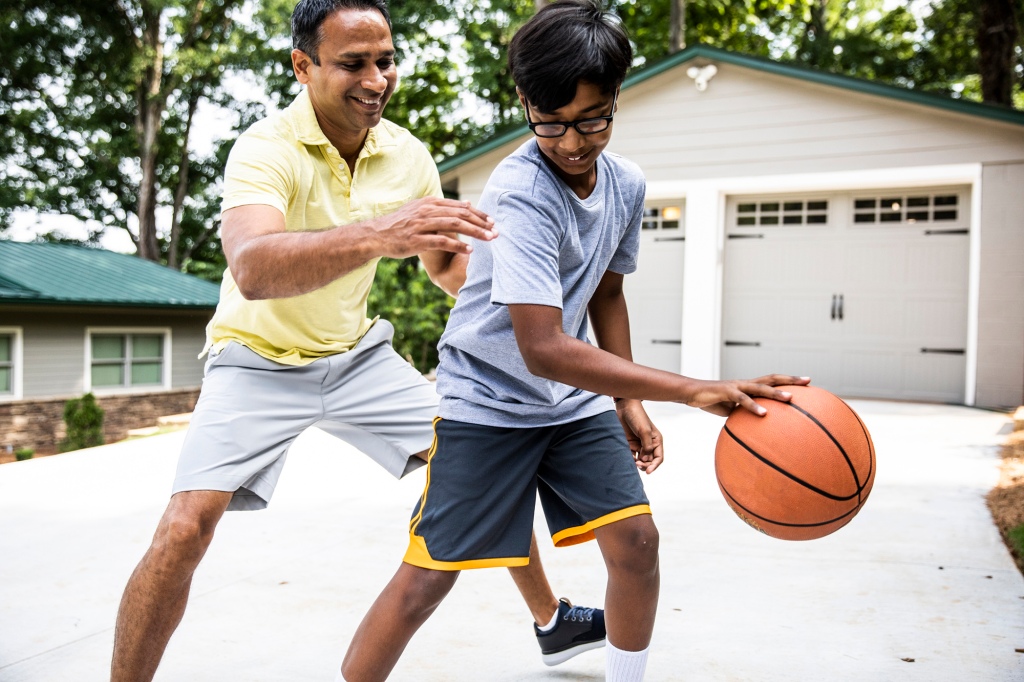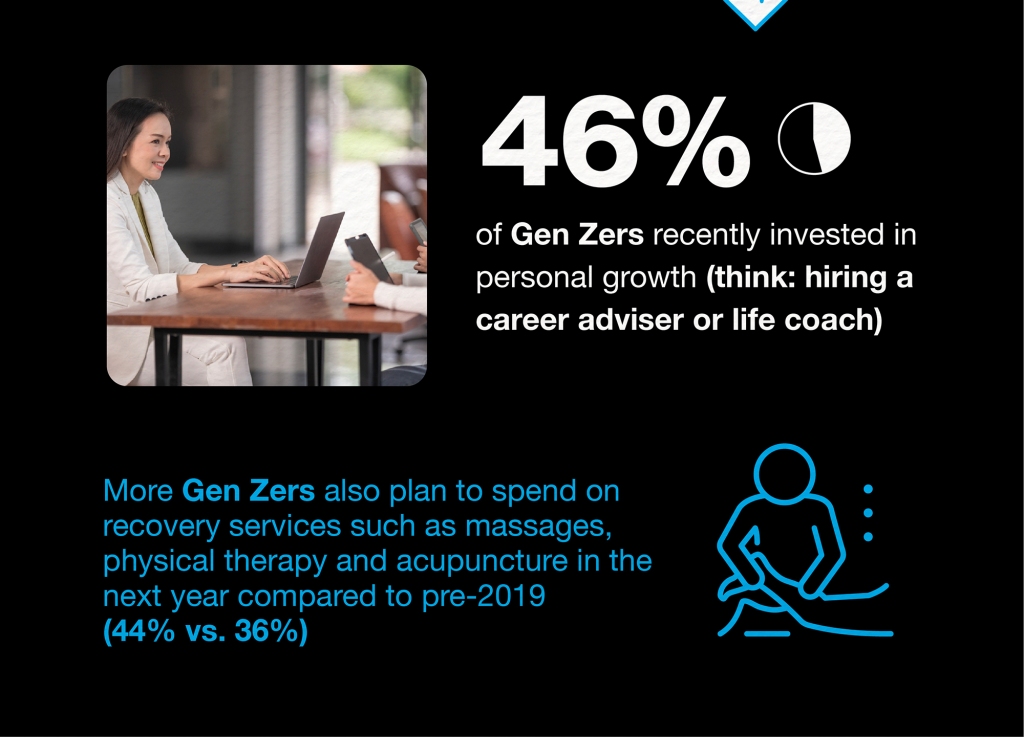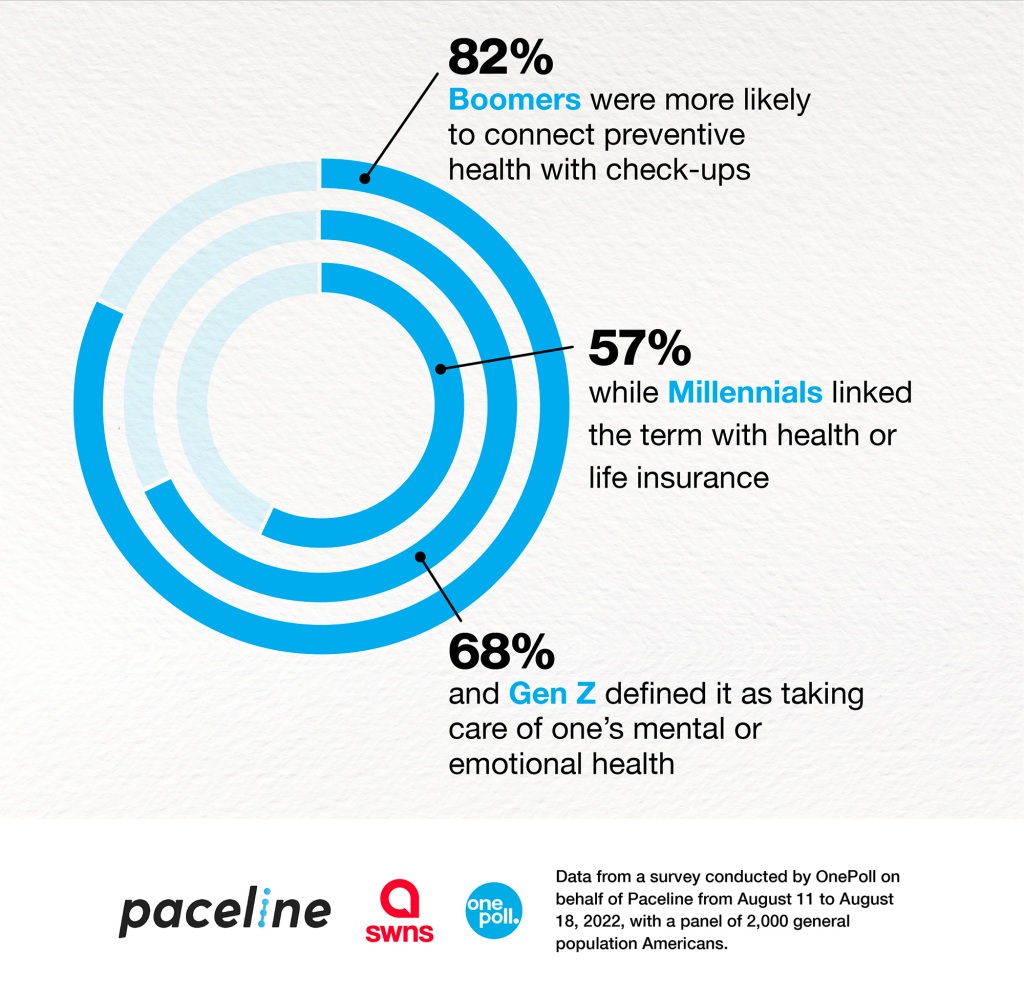How do different generations treat their health as an investment?
Seven in 10 Americans (72%) treat their health as an “investment” that will gain value over time.
A new survey of 2,000 U.S. adults found the average person would spend $827 more on fitness apparel and equipment this year if they knew they would be in the best shape of their life 20 years from now.
Nutrition, including healthy groceries, topped the list of recent health-related spends (48%), followed by health and wellness tech such as apps and fitness wearables (45%).
The survey, commissioned by Paceline, a fitness app and credit card that provides rewards for working out, and conducted by OnePoll, found that among millennials, more than two in five recently invested in their financial wellness (45%) and in wellness experiences (41%), including wellness-focused travel. Meanwhile, investing in personal growth, including a career adviser or life coach, was most popular among Gen Z respondents (46%).

The pandemic also shifted how different generations are spending their time and money in health and wellness. Compared to boomers, more millennials plan to increase spending on their financial health in the next year (39% vs. 23%). Gen Zers are ramping up spending on recovery services such as massages, physical therapy and acupuncture, with 44% placing this on their radar for the next year compared to 36% before 2019.
The average person expects to see results in about three months to feel that their investment in fitness equipment, health tech, or groceries has paid for itself.

While seeing physical results (48%) and earning financial rewards (39%) topped the list to incentivize people to invest more in their health and wellness, people would also invest more in their health if it increased their earning potential (31%), decreased their hospital bills (31%), greatly increased their social media following (30%) or spiced up their love life (26%).
“Our research found that 46% of American adults are spending money on wellness apps or platforms, but many may still see their pursuit of fitness as very separate from their finances,” says Joel Lieginger, Founder and CEO, Paceline. “We want everyone who invests in their physical health to fully realize its financial value as well.”

Results also revealed how different generations are defining preventive health, as part of their overall health and wellness. Boomers were more likely than other age groups to connect preventive health with check-ups (82%), while millennials linked the term with health or life insurance (57%), and Gen Z defined it as taking care of one’s mental or emotional health (68%). Other ways Gen Z defined preventive health include fitness (67%) and nutrition (54%).

“That younger generations are expanding how they think about preventive health is a powerful signal of change to come, because today’s healthcare is – in many ways – sick care,” Lieginger concluded. “It’s important for people to get moving and be proactive about their health. Science shows incentivizing good health behaviors improves health outcomes, which is good for individuals and good for the world.”

Among all respondents, more than two-thirds (67%) believe it’s cheaper to pay for health and wellness products or services today than to have hospital bills in the future.
And three-fourths (75%) believe any health or wellness product should be tax-free.
Read the full article Here


